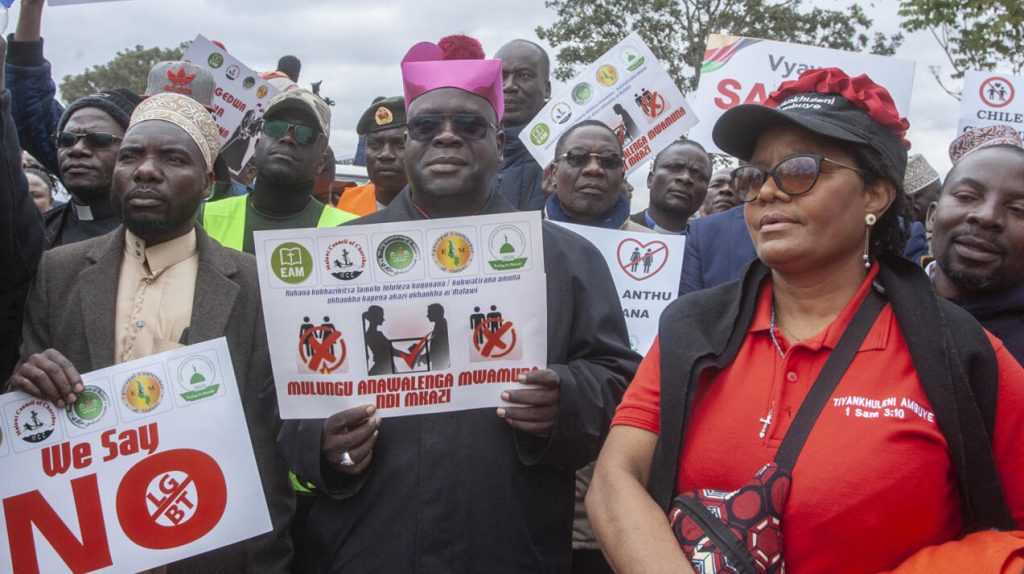Court shadows LGBTQ rainbow
he echoes of a pivotal legal battle over lesbian, gay, bisexual, transgender and queer (LGBTQ) rights might still be reverberating across the nation in 2025.
In a landmark judgement last June, the Constitutional Court upheld the criminalisation of same-sex relationships, affirming the constitutionality of contentious provisions in the Penal Code.

The court ruling, delivered in a marathon of six hours in Blantyre, followed a case filed by Dutch national Jan Willem Akster and a Malawian, Jana Gonani, challenging sections 153, 154 and 156 of the Penal Code.
The provisions criminalise acts “against the order of nature” and other same-sex conduct.
The two complainants argued that these provisions were unconstitutional and violated fundamental human rights.
However, the Constitutional Court, led by justices Joseph Chigona, Vikochi Chima and Chimbizgani Kacheche dismissed the application.
They found the arguments insufficient to substantiate claims of bias or discrimination against same-sex individuals.
“The provisions are constitutional. If the applicants feel unfairly targeted, the best option is to lobby Parliament to change the law,” said Chigona.
While the decision marked a legal victory for conservative voices, it drew heavy criticism from human rights advocates who saw it as a missed opportunity to advance equality and justice.
The ruling was described as a ‘dark day’ for LGBTQ rights by international Human Rights Watch (HRW).
HRW asked Parliament to amend the Penal Code and uphold Malawi’s obligations under international human rights treaties.
“Parliament should urgently review and amend the Penal Code to end anti-LGBT discrimination and protect everyone’s right to safety, privacy and dignity,” the organisation said.
Locally, the Centre for the Development of People (Cedep) expressed disappointment with the court’s approach.
Cedep executive director Gift Trapence criticised the judgement for failing to engage with human rights issues.
“The court fell short of analysing these provisions in the context of our Constitution and international instruments Malawi has ratified,” he said.
Despite the court’s recommendation for legislative action, the likelihood of Parliament amending these laws remains slim.
The then Legal Affairs Committee chairperson Peter Dimba said societal norms and values still detest LGBTQ rights, influencing MPs who represent public opinion.
“Laws operate within societal norms. Given the adverse public sentiment on this matter, legislative reform is highly unlikely,” he said.
Centre for Human Rights and Rehabilitation executive director Michael Kaiyatsa also acknowledged socio-political hurdles.
“Politicians are reluctant to push for controversial changes for fear of backlash from their constituents and religious groups,” he said.
He said legislative reforms would only happen if there were a change in perceptions towards LGBTQ individuals. The Constitutional Court’s ruling has solidified the status quo, but it has also sparked renewed calls for reform, leaving Malawi’s LGBTQ rights debate far from settled.





